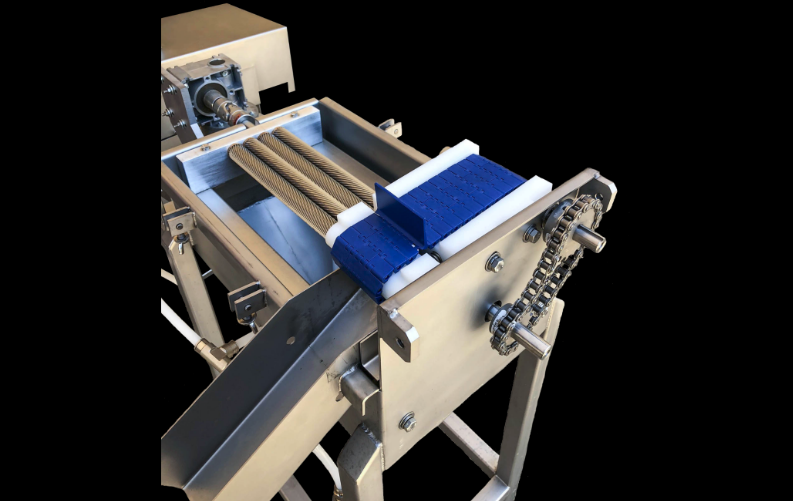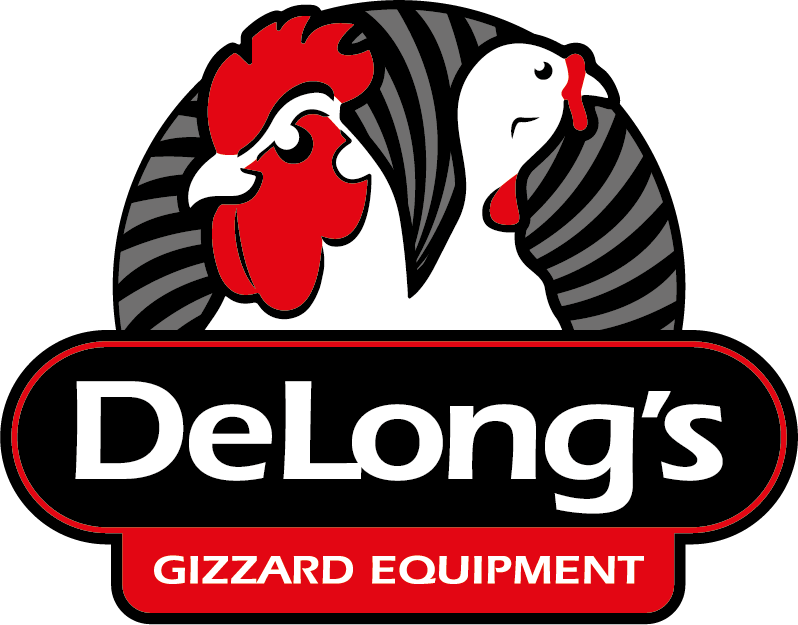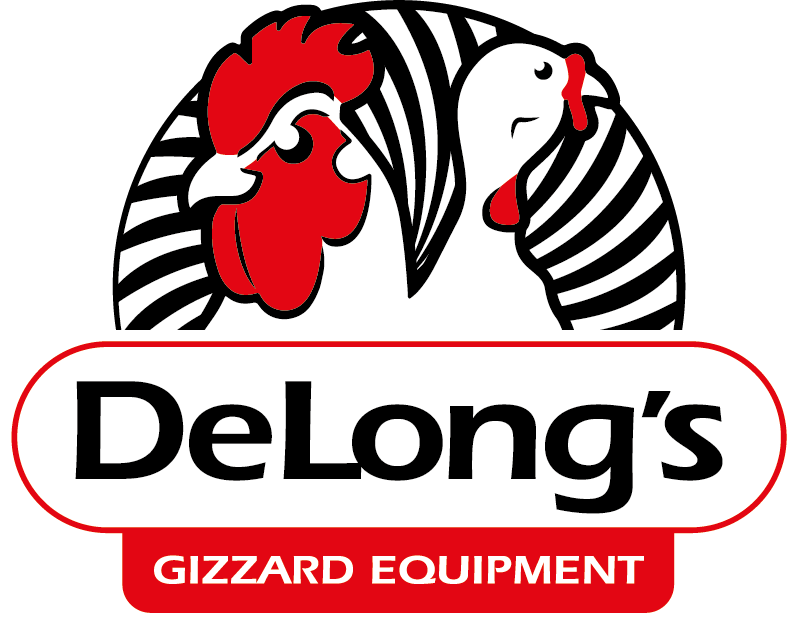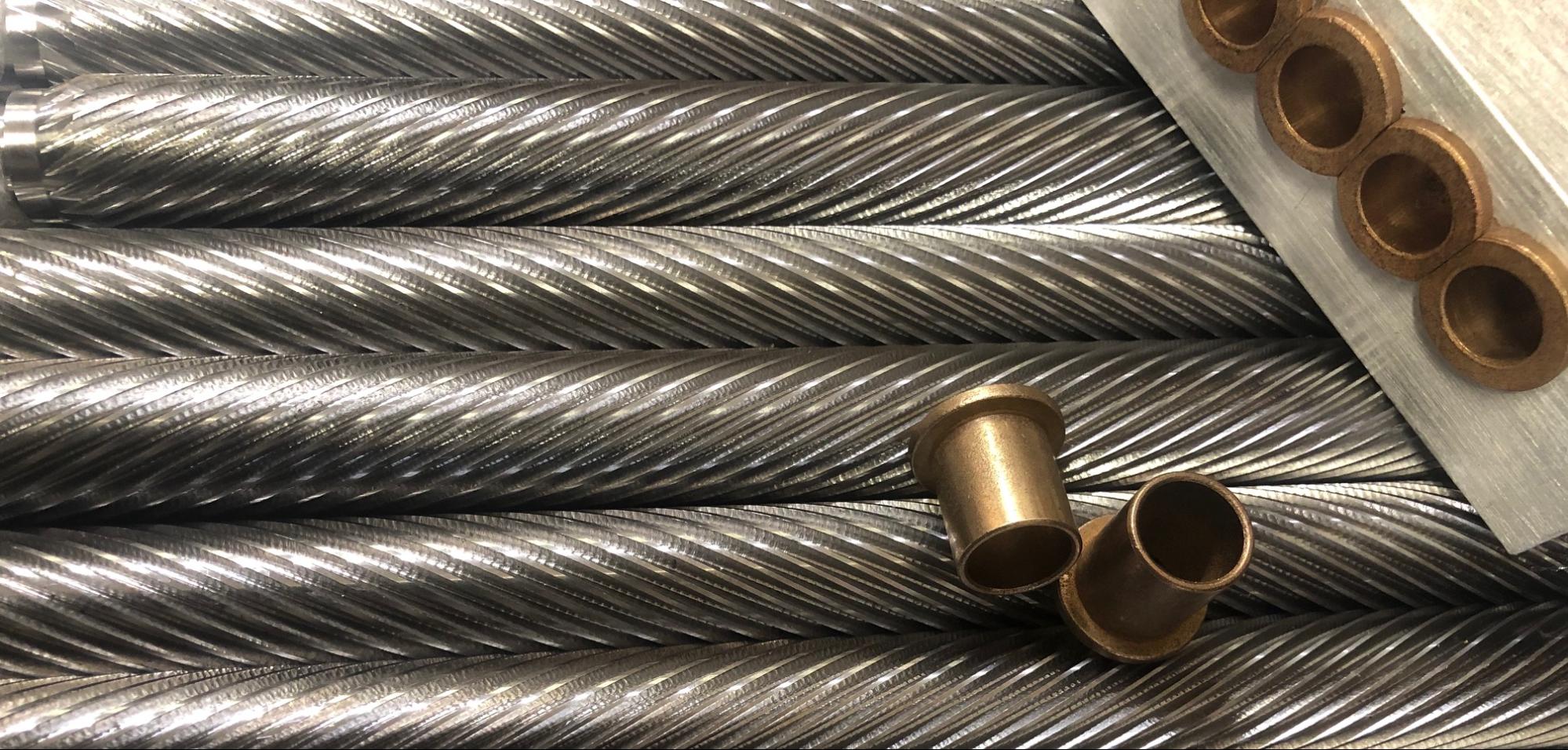
29 Jun Machine Ettiquette: Safety Precautions
Working with heavy and high-tech machinery can be very dangerous. It is important for workers to understand the machines they are working with, the appropriate precautions and procedures to safely and effectively complete their jobs. Safety is not something that should be overlooked, so we would like to emphasis and draw light to the importance of machine etiquette.
Delong’s offers an assortment of Gizzard Peeling Rollings that consist of a rotating shaft with a helical gear designed to peel the skin from the gizzard. Though these machines excel at what they do, they can also pinch and pull any loose material like skin, clothing, or any other hanging items coming into contact with them.
Working with specialized equipment comes with its own set of hazards and safety procedures. There are many kinds of machines that workers could come across in their workplace. Below are a few common hazards found from working with heavy machinery.
Specific Machine Hazards:
Debris – Working with machinery, especially processing and cutting machinery, can often be messy and lead to debris going airborne from the machine during the procedure. To avoid any debris hurting your workers, they should be wearing the proper personal protective equipment (PPE). Especially in the case of raw meat, wearing PPE will help avoid bacterial infections such as salmonella and campylobacteriosis.
Lacerations and Amputations – A fairly obvious danger of working with heavy machinery, but a very important one. If you are working with cutters, shears, blades, saws, etc. they must be safeguarded.
Noise – Machines can make a lot of noise that can damage the ears of your workers. PPE such as headphones or earplugs should be worn when working with loud machines. If crucial information needs to be discussed, make sure the noise of the machines are not leaving your workers uninformed.
Electrical Shock – Machines require a lot of energy and power to function. This high amount of energy can pose man threats to workers. Workers should operate high voltage equipment with care to avoid shock, and should always wear PPE. Water and other liquids should be kept away from electrical machinery.
Fire – If proper electrical safety precautions are not met, or flammable material is handled improperly, fire is a serious threat to the entire workplace. Proper fire safety training including a fire escape plan, necessary signs, and easily accessible exits are a must.
To ensure that workers are using the equipment properly and promote efficiency, we have compiled a list of tips to follow for the safest roller usage.
Follow these guidelines to safely and appropriately operate gizzard peelers:
- Do not wear gloves, long sleeves, loose shirts or smocks as they can get caught in the rollers.
- Remove all dangling jewelry before working, as they can also get caught in the rollers.
- Trim long fingernails so they do not get caught, or break and cause unexpected actions.
- Tie up, or cut, long hair. Long hair is easily caught in machines.
- Do not press the tips of your fingers toward or in rollers, apply pressure to gizzard with the horizontal flat part of your palm and bottom flat of your fingers only.
- Inspect every gizzard before peeling it for best quality, if it looks bad, infected, or unsafe, dispose of it properly.
- If the gizzard has been peeled it goes to the good product chute.
- Never remove or try to work around machine safeguards while the machine is functioning.
- Don’t create new hazards, such as allowing objects to fall into the moving parts or by creating a new pinch point.
- Report problems with machine safeguards to your supervisor immediately.
- Never leave machines unattended with parts still moving. Remember that parts may still be moving after the machine has been turned off.
- Remove guards only when the machine has been locked out and tagged out.
- Operate equipment only when guards are in place and properly adjusted.
- Do not use unauthorized or damaged guards.
- Ask your supervisor if you have any questions about machine safety or how to work with machine guards safely.
At DeLong’s, and at all meat processing plants across the country, equipment safety and safe working environments are essential parts of the day-to-day operations. By addressing these concerns, taking steps to prepare workers for potentially hazardous conditions, and looking for creative solutions, processing workers can safely produce and provide for consumers. If you’re ready to order rollers, contact us.


